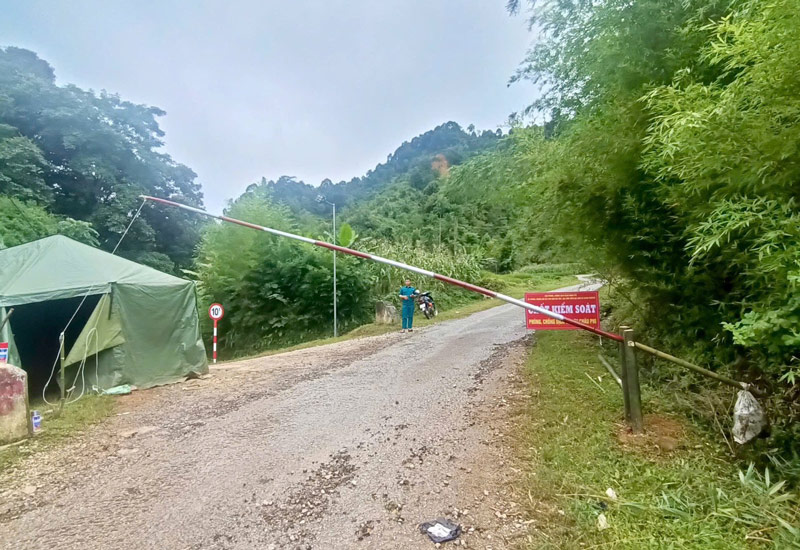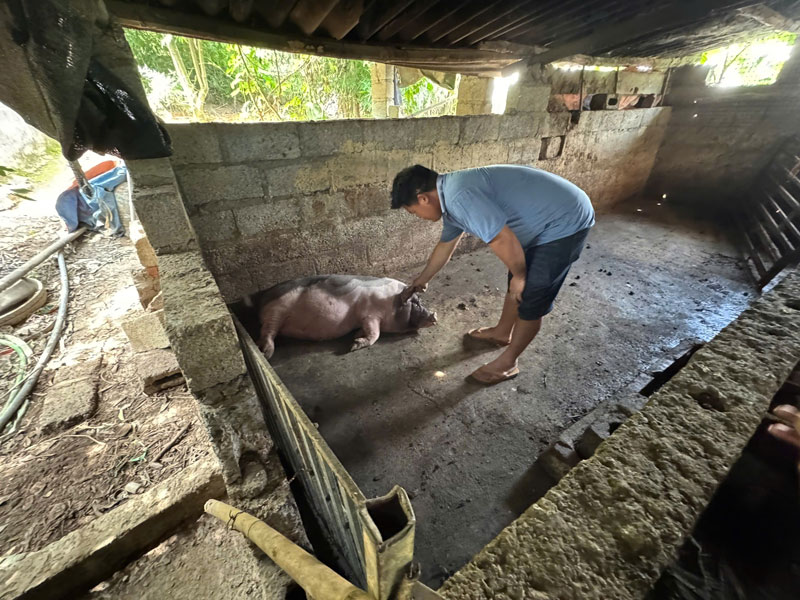On August 8, in Bao Lam commune, African swine fever appeared in 7 hamlets, causing more than 3 tons of pigs from 13 households to be destroyed.
The People's Committee of the commune has requested to temporarily suspend all activities of buying and selling pigs and pig products, as well as transporting pigs out of the area. People are warned not to sell sick pigs or slaughter them without permission from the authorities.
The functional sector of Cao Bang province is continuing to closely monitor the development of the epidemic, and at the same time calling on people to cooperate in preventing and combating African swine fever to soon prevent the spread of the epidemic and minimize damage to the local livestock industry.

In Xuan Truong commune, the People's Committee of the commune has established 2 quarantine stations in Cap Can and Hoi hamlets, operating 24/7 with 5 people on duty to strictly control the source of pigs entering and leaving. This action is expected to help the locality control it soon, not allowing the swine fever to spread more widely.
According to the Department of Agriculture and Environment (DONRE) of Cao Bang province, African swine fever has appeared in 56 communes and wards across the province. Statistics show that since the beginning of the year, nearly 33,000 pigs of about 6,500 infected households have been forced to be destroyed. Of these, there are more than 8,800 breeding pigs and nearly 24,000 pigs, with a total weight of nearly 1,700 tons.
The main cause of the strong outbreak is the subjectivity of people in disease prevention and control. Prolonged humid weather, along with poor disease monitoring at the facility, has created conditions for the epidemic to spread rapidly, causing heavy damage to the province's livestock industry.
Faced with this complicated development, the provincial Department of Animal Husbandry and Veterinary Medicine has established 10 working groups to strengthen inspection, supervision, and implementation of zoning and disinfection measures.

Epidemic prevention teams in hamlets with outbreaks are deployed on duty 24/7, strictly controlling the transportation and destruction of sick pigs, while organizing general cleaning of barns, disinfection and isolation of outbreak areas.
Localities are required to carry out periodic vaccination, spray disinfectants in batches; support the purchase of vaccines and chemicals to handle outbreaks; destroy disease-affected pigs in accordance with regulations.
Livestockers are advised to absolutely not hide epidemics, not buy, sell or transport pigs of unknown origin, and strictly follow biological safety measures in livestock farming.
On August 5, the Department of Agriculture and Rural Development issued a notice requesting communes and wards to stop all pig trading and transportation activities at all livestock markets in the area. Along with that, many localities are urgently implementing measures to control the epidemic.











